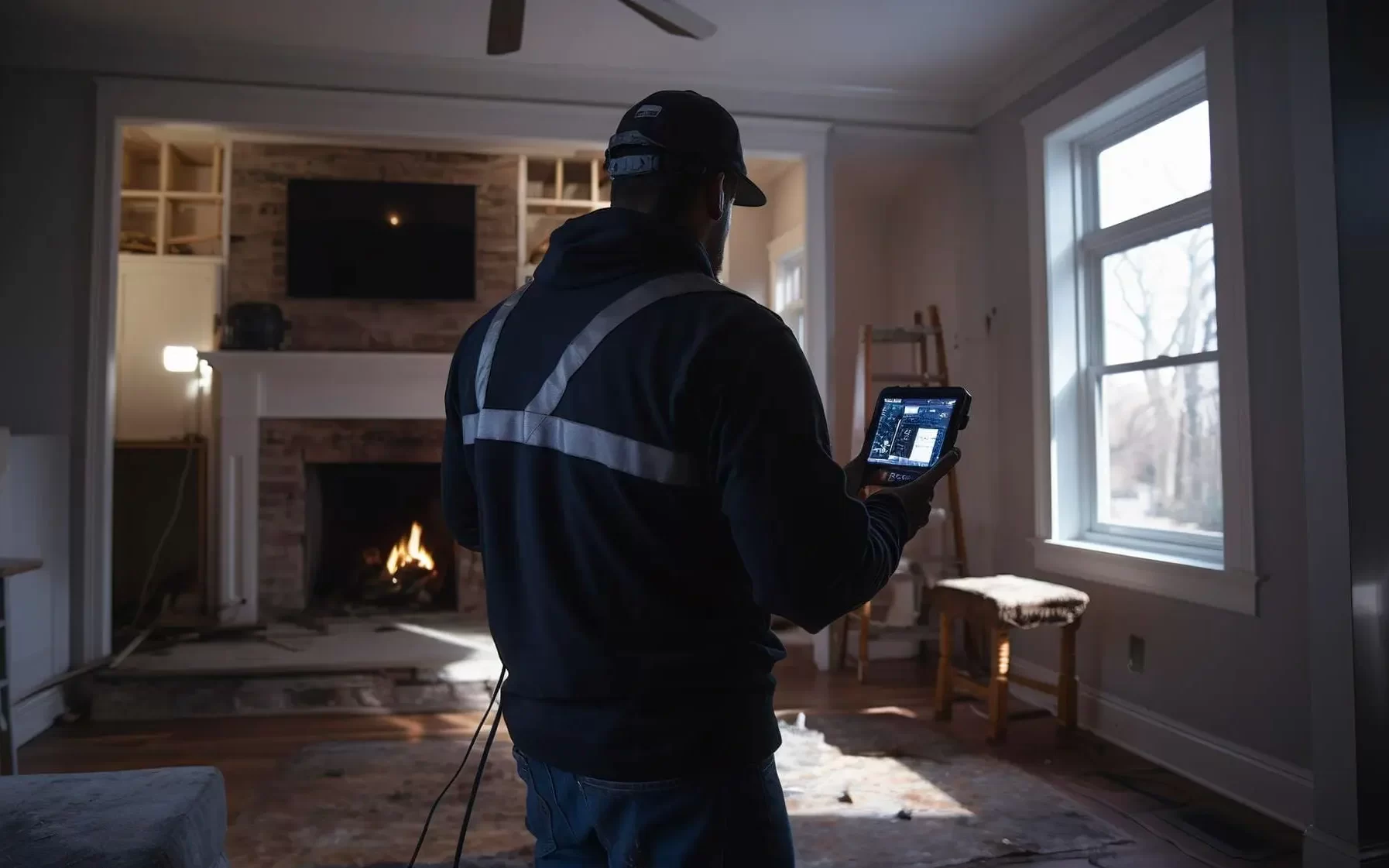Estate Sales and Quick Home Selling Strategies for Immediate Cash

Estate sales and quick, as-is home selling strategies are crucial for fast cash. Learn how to handle estate sales with care and sell your home efficiently. Both tasks require informed decision-making and sometimes professional guidance to navigate successfully, ensuring a smooth process for financial and personal transitions.

Part I: Mastering Estate Sales
Estate sales are often misunderstood, seen through a lens of weekend bargain hunts or conflated with simple garage sales. However, their purpose and execution are far more involved, usually occurring during significant life changes such as downsizing, debt management, or after a loved one has passed away. This section aims to clear up misunderstandings, providing a clear view of what estate sales involve and how to approach them with both efficiency and sensitivity.
Understanding Estate Sales
Estate sales are not your typical weekend yard sales. They are comprehensive events aimed at liquidating a significant portion of one’s belongings under circumstances that usually involve a major life change. Unlike garage sales, which are casual sales of unwanted items, estate sales involve selling the majority of a person’s possessions. These sales are more structured and often managed by professionals. Unlike auctions, where items are sold to the highest bidder in a competitive setting, estate sales involve marked prices with the option for bargaining as the sale progresses.
The Basics of Estate Sales
Estate sales come into play under several conditions, such as the death of a property owner, significant downsizing, or other substantial life changes requiring the disposal of many or all personal belongings. These sales are particularly useful for quickly liquidating assets and converting them into cash, which can be crucial for settling debts or managing the expenses of a transition.
The key differences between estate sales, garage sales, and auctions lie in their structure and purpose. Garage sales are informal, usually selling a limited range of items without professional involvement. Auctions, while more formal, focus on selling individual items to the highest bidder. In contrast, estate sales are more comprehensive, selling a wide range of items from furniture to personal effects, usually over a few days.
Emotional Considerations in Estate Sales
Organizing an estate sale can be emotionally taxing. It involves sifting through personal belongings, each with its own memories and significance. It’s important to approach this process with patience and allow yourself to grieve and process emotions as they come. It can be helpful to involve friends or family in the process, providing support and making decisions together.
Dealing with personal belongings and memories requires a strategy that balances emotional well-being with the need to progress through the sale preparation. Begin by sorting items into categories, deciding what to sell, keep, donate, or discard. For items with significant emotional value, consider if keeping them will provide comfort or if it’s better to let go and allow others to appreciate them. Sometimes, photographing items before selling them can help preserve memories without keeping the physical object.
In managing an estate sale, it’s crucial to be informed and prepared. Understanding the logistical differences and emotional landscape of these sales can make the process more bearable and successful. Remember, estate sales are not just about parting with belongings; they’re a step in transitioning to a new phase of life.

Organizing a Successful Estate Sale
Organizing an estate sale can seem overwhelming at first. It’s not just about selling items; it’s about doing so in a way that respects the value of the belongings and the emotions involved. This part of the guide provides straightforward advice on how to prepare for and conduct an estate sale effectively.
Preparation and Pricing
The first step in organizing an estate sale is to thoroughly inventory the items to be sold. This means going through belongings and deciding what will be included in the sale. Once the inventory is complete, each item needs to be appraised to determine its value. Appraisals can be done through online research for common items, but for more valuable or unique items, it may be worth hiring a professional appraiser.
Pricing items is a critical step that can determine the success of the sale. The goal is to set prices that are fair and competitive. Pricing too high can discourage buyers, while pricing too low means not getting the value the items are worth. A good strategy is to start at a higher price point on the first day and lower prices as the sale progresses to encourage purchases.
Staging and organizing the sale effectively are also crucial. Arrange items in a way that makes them easily accessible and visually appealing. Group similar items together, and make sure everything is clearly priced. Creating a welcoming and organized space can significantly increase the likelihood of items being sold.
Legal and Financial Aspects
Understanding the legal and financial aspects of an estate sale is essential. Depending on your location, there may be specific laws and regulations governing estate sales. This can include the need for permits or restrictions on where and how sales can be conducted. It’s important to research and comply with these regulations to avoid any legal issues.
Financially, there are several considerations to keep in mind. If you’re using a professional estate sale company, be clear on the terms of their fees and commissions. Additionally, it’s important to understand the tax implications of the sale. Income from the sale may be taxable, and there may be specific tax exemptions or deductions available.
Dividing the proceeds of the sale is another critical aspect, especially when multiple heirs or beneficiaries are involved. Clear communication and agreements on how proceeds will be shared can prevent conflicts. In some cases, it may be helpful to involve a legal or financial advisor to ensure the process is fair and transparent.
Organizing a successful estate sale requires careful preparation, from inventory and pricing to staging and legal compliance. By following these steps and keeping informed about the legal and financial aspects, you can ensure the estate sale is conducted smoothly and successfully.
Part II: Quick, As-Is Home Selling for Immediate Cash
Selling your home as-is means it goes on the market in its present condition, offering a fast way to sell without the cost of repairs. This approach demands an understanding of market dynamics and buyer expectations to secure a successful sale.
Compassionate Property Solutions stands out as a key player in this field, bringing vast experience to quick, as-is home sales. They offer crucial support, from accurately pricing your home to attracting the right buyers, ensuring a straightforward selling process. Their commitment to clear communication and transparency makes them a reliable partner for those looking to sell their homes quickly and with minimal fuss.

The Essentials of Selling Your Home As-Is
When you sell a home as-is, you’re telling potential buyers that what they see is what they get. This doesn’t mean you can hide problems, as honesty about the condition of your home is critical. However, it does mean you won’t be making any improvements before the sale. This approach has both advantages and drawbacks that are important to understand.
What Does Selling As-Is Mean?
Selling as-is simplifies the selling process by eliminating the need for home repairs and improvements before listing. Buyers entering an as-is sale are aware that the home may need work and are prepared to take on these repairs themselves. This arrangement can speed up the selling process and reduce your costs, but it might also limit your pool of interested buyers and lower the sale price.
The benefits of selling as-is include a faster selling process and fewer expenses related to home prep. However, the drawbacks are that you might receive lower offers since buyers will be accounting for the cost of repairs they’ll need to make.
Preparing Your Home for an As-Is Sale
maximize your sale potential. Simple, low-cost improvements like a thorough cleaning, decluttering, and a fresh coat of paint in key areas can make a significant difference. Focus on curb appeal and the first impressions buyers will have upon entering your home.
Presenting your home involves more than just making it look good. It also means being transparent about its condition. Provide potential buyers with a pre-sale inspection report that outlines any known issues. This transparency can build trust and help prevent negotiations from stalling later on.
To attract as-is buyers, market your home accurately, emphasizing its potential and the benefits of being able to customize the property. Working with a real estate agent experienced in as-is sales can also help you reach the right buyers and navigate the selling process more effectively.
Selling your home as-is for immediate cash is a viable option if you understand the process and know how to prepare your property effectively. By focusing on transparency, minimal improvements, and strategic marketing, you can attract the right buyers and achieve a successful sale.

Strategies for a Quick Sale
Selling your home quickly, especially in an as-is condition, requires a well-thought-out strategy. The right approach can not only speed up the sale but also ensure you get the best possible offer in the circumstances. This section dives into practical pricing strategies and marketing techniques tailored for as-is sales, as well as how to handle the closing process effectively.
Pricing Your Home for a Quick Sale
Setting the right price is crucial in attracting buyers and closing a sale swiftly. The price should reflect the as-is condition of the home, meaning it accounts for any repairs or updates the new owner will need to undertake. To do this effectively, you must have a clear understanding of the current market trends and how your home fits within them.
First, research similar homes in your area that have sold recently, paying close attention to their condition, features, and sale prices. This comparison can give you a ballpark figure to start with. Then, adjust this figure based on the specific issues and advantages of your property. For instance, if your home requires significant repairs, you’ll need to lower your price expectations accordingly.
Remember, the goal is to find a balance where the price is low enough to reflect the as-is status but high enough to ensure you don’t leave money on the table. An experienced real estate agent can provide valuable insight here, helping you to set a competitive price that attracts buyers quickly.
Marketing and Closing the Deal
Effectively marketing an as-is property means highlighting its potential while being transparent about its condition. Utilize online listings, social media, and real estate platforms to reach a wide audience. High-quality photos, a detailed description of the property, and an honest account of its as-is condition can help attract serious buyers who are prepared to take on a project.
In your marketing materials, emphasize any positive features of the home, such as its location, lot size, or unique architectural elements. These highlights can appeal to buyers looking for a property they can customize or renovate to their liking.
When it comes to closing the deal, be prepared for a thorough inspection process. Buyers will likely conduct their own inspections to understand what repairs are needed. Be open and cooperative during this process, as trust and transparency can prevent hiccups later on.
Negotiations may also play a significant role in the closing process. Given the as-is sale, buyers may request price reductions to cover repair costs. Decide in advance how much you’re willing to negotiate. Having a clear bottom line can help the negotiation process move smoothly.
Lastly, ensure all paperwork is in order, from the initial offer to the final sale agreement. Working with a knowledgeable real estate attorney or agent can ensure that the closing process is handled efficiently, with all necessary documentation prepared and reviewed accurately.
By implementing these strategies—setting the right price, marketing effectively, and managing the closing process with care—you can increase your chances of a quick and successful as-is home sale.
In this blog, we’ve outlined strategies for sensitively handling estate sales and quickly selling homes as-is for cash. The focus has been on practical steps such as proper home preparation, pricing, and understanding the legal and financial aspects of each process.
Remember, approaching these situations with well-informed decisions is crucial. Whether it’s navigating an estate sale or fast-tracking an as-is home sale, knowing your market, legal obligations, and financial objectives is key. And while this guide offers foundational advice, consulting with professionals like real estate agents or legal advisors can provide the specific guidance needed for your circumstances.
Keep these insights in mind as you tackle estate sales or as-is home selling, and don’t hesitate to seek professional help to navigate these processes more smoothly and successfully.














